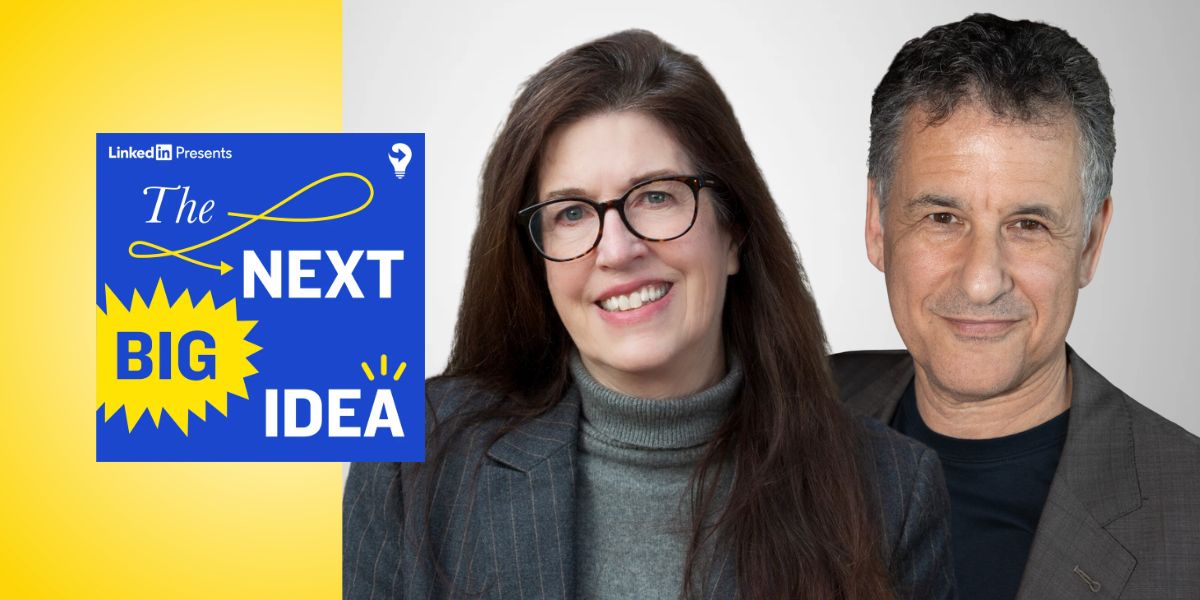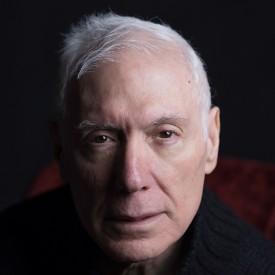In this special episode of The Next Big Idea podcast, Susan Rogers, a record producer turned cognitive neuroscientist, and Daniel Levitin, author of This Is Your Brain on Music, get together to discuss what music has meant in their lives, debate what separates a great artist from a generic one, and share some of their favorite tunes.
Sign up for The Next Big Idea newsletter here.
On working for Prince
Susan Rogers: I was working for Crosby, Stills, and Nash in Hollywood as their studio maintenance tech, keeping the studio running, and I got this phone call from my friend at Westlake Audio, and he said, in his thick Boston accent, “Sue, your dream job is waiting for you. Prince is looking for a technician!” Well that was great because Prince was my favorite artist in the world, I was a technician, and I thought, This job was meant for me. I got the gig and I moved—left everyone I’d ever known, left California, went to work for Prince in 1983. He was just wrapping up the 1999 tour. He had gotten the green light to do the Purple Rain movie, and he had already started work on the Purple Rain album. It was a very exciting time. He had just turned 25, I had just turned 27, so we were all pretty young at that time.
Daniel Levitin: I’ve known a lot of maintenance engineers, and I can’t think of a single one who transitioned to being a first engineer. How did that happen? I mean, usually the maintenance engineer isn’t supposed to have an opinion about the artistic side of things. They’re not even supposed to have an opinion about which mic to use or where to place it. And so at some point The Great One must have intuited that you had some skill outside of your job description.
Susan: Oh, thank you for pointing that out. That’s exactly what happened. Maintenance technicians stay in their lane. They are people who repair the equipment, and they’re in the studio when everyone else is gone. But Prince transitioned me from that role of being his maintenance tech into being his engineer. It’s well known that Prince just didn’t like to talk a lot, and he sure as hell didn’t make a lot of small talk. So if he had someone he was familiar with in the room who already knew all the signal flow, why not just have that person stay on the job and just carry on?
“It’s well known that Prince just didn’t like to talk a lot, and he sure as hell didn’t make a lot of small talk.”
The first time he asked me to set up a microphone, I asked him, “Where would you like me to put it?” And he said, “In front of my mouth.” The subtext there was: Figure it out. Don’t ask me everything. That’s how you had to be with him.
On quitting the music biz to become a cognitive scientist.
Susan: I entered my career as record maker because I felt a calling. My fantasizing mind was always imagining being in the studio. I pictured the players and the performers, and it’s a really good life when your body can be where your mind is, when your fantasies can come to life. I was able to make that happen in the music business. I fantasized about being in the studio and I was able to put myself there.
But in my late 30s, my fantasies began changing. I began thinking, You know, I would really enjoy staring through the lenses of a microscope or looking at spreadsheets of data and exploring questions about the natural world. By the time I was in my early 40s, it became really clear that I really wanted a life as a scientist. I wanted to be in a laboratory. So I had to figure out a way to get my body to be where my mind was.
I went from being a professional record maker for over 22 years to earning a GED, getting into the University of Minnesota, and then going to McGill and getting a PhD.
On exploring the mystery of the brain–music connection.
Susan: Sometimes people want to know if exploring the brain-music connection dilutes the mystery of music. I don’t know about you, Dan, but I think I know what the answer is.
“That’s what music is optimized for—the feelings that you have, the thoughts you have, the fantasies you have.”
For me personally, my love for music has never gone away. And the more I’ve learned about what the brain is doing while it’s processing music, the more I love it even more. Think about those hundred billion neurons in an infinite variety of connections. You put on a record and you’ve got a pattern of neural activation going on up there in your brain. Think of all the responses you have to it. Think of the visualizations. Your mind can start to fantasize and think about the way your body can move to it. Think about emotions. That’s what music is optimized for—the feelings that you have, the thoughts you have, the fantasies you have, and many ways you get rewarded from that. Could there be a more delightful mystery to explore? I don’t think so.
On the relationship between technology and music.
Susan: Two-hundred years ago, only a select few could afford well-made, tailored clothing. Everyone else had to sew together burlap bags or flour sacks. Now, with the advent of new technology, there’s mass produced clothing. Likewise, everyone has the tools to make music, and many of them are making music.
This has changed our concept of what music is. It’s becoming less of a refined art and more of a practical utility in our lives. This, by necessity, will change music’s form. Producers will be making records that are a little bit more utilitarian. What do you think about that, Dan?
Dan: I think about the kind of paintings that you see in a Holiday Inn or a Best Western. They’re generic. It’s easy enough now to make those kinds of things, but real artists are still going to try and do something that is different, something that takes time and design.
And so on the one hand, I’m thrilled that more people can make music. I love the idea that the average person doesn’t now have to spend 20 years learning to play a musical instrument before they can have fun. And, of course, that was what punk was all about, right? It was: I just want to bang something. So the idea that millions more people now can make music is great.
“[Music] is becoming less of a refined art and more of a practical utility in our lives.”
The problem we have that we didn’t have before is a signal to noise problem. There’s so much more to choose from. It used to be that if you bought something on Warner Bros., you didn’t know if you liked it, but you knew the quality would be good. You could trust that the Warner Bros. imprint meant something. Columbia meant something. It was the label home of Dylan and Springsteen and Billy Joel—
Susan: Frank Sinatra.
Dan: Yeah, Sinatra and Aretha Franklin. Simon and Garfunkel. It meant something. The way we consume music now, it’s like a big lotto bin. You’re pulling out one number at a time and hoping that you get a winning number. We have to figure out how to fix that. But I really do believe that technology hasn’t changed the way creative people work or think, because they’re the ones who don’t want to do what’s been done before. Prince did not want to just do what somebody had done before. Can you imagine Prince playing in a cover band in a Holiday Inn? That’s not him.
Susan: I’ve seen Prince play in a Holiday Inn, and I’ve heard him do cover versions, so I can kind of imagine it.
Another thing that’s missing in this great equation is A&R, artists and repertoire. If you’re signed to a record label, as you had to be in the old days, there was an A&R person, like an editor at a publishing house, that honed your work and got it ready for the spotlight. These days, many people are just self-publishing, so to speak, and they don’t have that person to dress up their work and get “record ready.” Artist development has disappeared. A lot of folks are making records, but they’re not necessarily “record ready” just yet.
You’re right, though. Artists will always be creative, and listeners will always seek melody, will always seek rhythm, will always love harmony, will always respond to clever lyrics. Music isn’t going to become unrecognizable anytime soon.
Edited and condensed for clarity.
You May Also Like:
- Susan Rogers and Ogi Ogas on their book, This Is What It Sounds Like
- 5 key insights from Declassified: A Low-Key Guide to the High-Strung World of Classical Music
- Susan Cain in conversation with violin prodigy, Min Kym, about her journey of love, loss, and self-discovery
- 5 key insights from Two Beats Ahead: What Musical Minds Teach Us About Innovation
To enjoy ad-free episodes of the Next Big Idea podcast, download the Next Big Idea App today:































